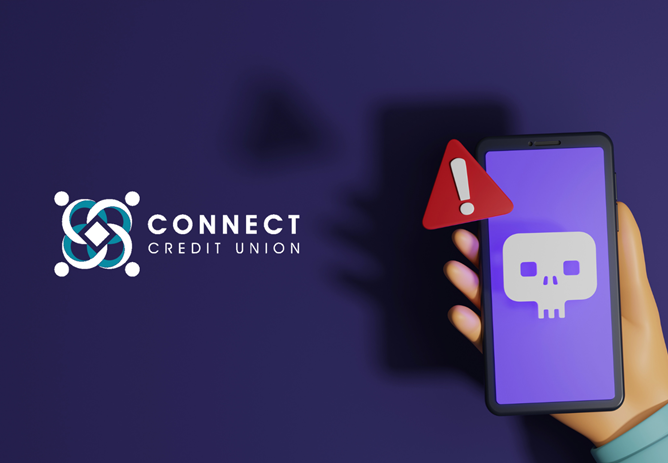20 December 2024
Cyber Security Awareness
As part of our ongoing campaign to raise awareness of the various risks faced by our members, please do exercise vigilance in relation to ‘phishing’ and any unsolicited or suspicious communications you may receive including any that purport to have been sent by or on behalf of Connect Credit Union so that you can protect yourself against any attempted fraudulent activity.
Phishing
Phishing is a type of fraudulent activity carried out by cyber criminals who send disguised e-mails or make phone calls or texts to people or organisations purporting to be from familiar or reputable sources to encourage the recipient to click on links to malicious websites, to transfer or pay money or to disclose sensitive information such as account details, account PIN numbers or passwords or credit card information.
Don`t be tricked
Be vigilant in relation to any unsolicited communications or attempts to convince you that a call is from persons claiming to act on our behalf or on behalf of your bank or other financial institution or by or on behalf of an official or State body in an effort to trick you into disclosing information in response. Be suspicious and do not be tricked, even if the caller knows some of your details such as your name and address, account number or date of birth.
Protect your information
Do not disclose any information when asked for personal data such as passwords, usernames, PIN numbers or banking information and do not click on any links or open any attachments from these communications. If you are in any doubt about a communication purporting to be from or on behalf of Connect Credit Union, do not respond. You should hang up and contact us directly to confirm the authenticity of the communication (and not the details the caller or sender used or provided when contacting you). All of our contact details are available on our website at www.connectcu.ie
Further Guidance
The National Cyber Security Centre (NCSC) and An Garda Síochána and the Banking and Payments Federation of Ireland have published guidance to educate the public about how to protect yourself from fraud which are available on the Fraud Smart website www.fraudsmart.ie and on the NCSC website www.ncsc.gov.ie.







